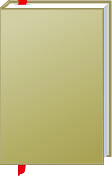The Sciences Of The Artificial
By (author): "Herbert A. Simon"
Publish Date:
February 28th 1970
ISBN0262191938
ISBN139780262191937
AsinThe Sciences Of The Artificial
Original titleThe Sciences of the Artificial
Now highly expanded in length and in the sweep of its intellectual design--the range of its consideration of social and economic systems has been extended and there is new material on human psychology--this book has been highly regarded and widely referenced since its publication in 1969.In that year a review in "Science" stated that "Herbert Simon is one of the leaders in the present development of a science of complex information processing. His contributions have been seminal in several different fields, yet always unified in their attempt to develop a precise and adequate theory of complex systems, whether social, political, or economic organizations or thinking, feeling, creating brains and computer-programmed models. "The Sciences of the Artificial" is a thoughtful synthesis of Simon's conception of complexity--how it arises, how it can be studied by a scientist, and how it can be coped with, adapted to, and understood by intelligent entities such as human beings and 'artificial intelligence' programs.... It is authoritative and at the same time provocative--a rare combination.""Artificial" is used in a very specific sense in this book: to denote systems that have a given form and behavior only because they adapt (or are adapted), in reference to goals or purposes, to their environment. Thus both man-made artifacts and man himself, in terms of behavior, are artificial.This edition contains three entirely new chapters--"Economic Rationality: Adaptive Artifice," "Remembering and Learning: Memory as External Environment," and "Social Planning: Designing the Evolving Artifact"--which have been interspersed among the original four: "Understanding the Natural and the Artificial Worlds," "The Psychology of Thinking: Embedding Artifice in Nature," "The Science of Design: Creating the Artificial," and "The Architecture of Complexity."
